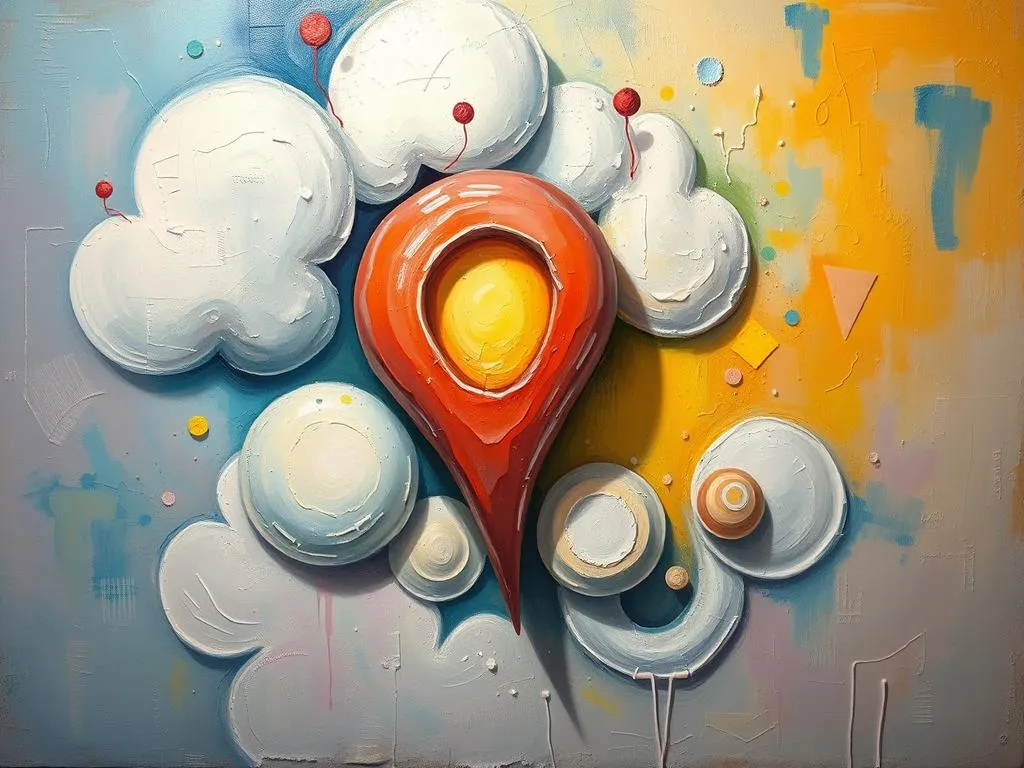
Dreams are a fascinating window into our subconscious, often filled with symbols and narratives that reflect our innermost thoughts, fears, and desires. Among the myriad of dream themes, the location plays a pivotal role. Locations in dreams can evoke memories, feelings, and even unresolved issues, acting as a backdrop to the unfolding drama of our nighttime narratives. Understanding the significance of these dream locations can not only pique our curiosity but also provide valuable insights into our waking lives. This article delves into the symbolism of dream locations, their varied interpretations, and how they can connect to our everyday experiences.
Symbolism and Meaning
When we explore dream locations, we often encounter a rich tapestry of symbols. Each location carries its own unique significance, shaped by personal experiences, cultural backgrounds, and emotional contexts.
For instance, dreaming of a childhood home often signifies nostalgia or unresolved issues from one’s past. This location can evoke feelings of safety and comfort, but it can also highlight areas of conflict or regret that need addressing. The emotional resonance tied to this location can reflect a desire for security or a longing to confront lingering childhood fears.
In contrast, a school setting in a dream can symbolize a quest for knowledge or a feeling of being tested. It may reflect current challenges in one’s life, suggesting that the dreamer is navigating through new learning experiences or facing judgments from others. The presence of classmates or teachers can further indicate how the dreamer perceives relationships in their waking life.
Natural landscapes, such as forests, mountains, or oceans, often represent the dreamer’s emotional state or spiritual journey. For example, a dense forest can symbolize feelings of being lost or confused, while a clear ocean might convey a sense of peace and clarity. The state of the environment—calm waters versus stormy seas—can mirror the dreamer’s emotional turbulence or tranquility.
Urban settings, like bustling cities, may reflect feelings of overwhelm or being lost in the crowd. Such dreams could suggest that the dreamer is grappling with their identity amid societal pressures or expectations. The vibrancy of the city can also embody ambition and the pursuit of personal goals, highlighting the dual nature of urban life.
Ultimately, the meaning of these dream locations is influenced by how the dreamer perceives them. Personal associations play a crucial role; a place may evoke positive or negative feelings based on past experiences. Therefore, engaging in personal reflection about why a particular location appears in a dream is essential for deeper understanding.
Key Scenarios and Variations
Dream locations can vary widely, and these variations can significantly alter the interpretation of the dream. For instance, dreaming of being lost in a familiar city can suggest feelings of confusion or a lack of direction in life. The familiar yet disorienting nature of the city may indicate that the dreamer is facing challenges in navigating their current path, even if they have a clear understanding of their goals.
Conversely, a dream about returning to a childhood school might evoke different meanings depending on how the dream unfolds. If the dreamer feels anxious during the experience, it could reflect a fear of judgment or inadequacy in their current life. On the other hand, if the dreamer feels empowered and ready to learn, it may symbolize personal growth and the embrace of new challenges.
Traveling in dreams can also introduce new locations, often representing a journey of self-discovery. For instance, dreaming of embarking on a trip to an exotic location may indicate a desire for adventure or a longing to escape from daily routines. However, if the dream features an unfamiliar or hostile environment, it might signify anxiety about change or fear of the unknown.
In some cases, dream locations can morph or shift unexpectedly. For example, transitioning from a serene beach to a chaotic urban scene may symbolize the dreamer’s fluctuating emotions or life circumstances. This transition can illustrate the struggle between the desire for peace and the pressures of daily life.
Moreover, dream locations can also connect to specific cultural symbols. In some cultures, certain places may carry deeper meanings. For example, dreaming of sacred sites can reflect spiritual quests or the search for meaning in one’s life. Understanding these cultural nuances can enhance the interpretation of dream locations, providing a more comprehensive view of their significance.
Real-Life Connections and Takeaways
Understanding the symbolism behind dream locations can offer profound insights into our waking lives. By reflecting on the emotions and situations present in the dream, individuals can uncover valuable lessons and guidance.
To connect these dreams to real-life scenarios, consider the emotions experienced during the dream. Did the location evoke feelings of comfort, anxiety, or confusion? These emotions can serve as indicators of one’s current emotional state. For instance, a dream about being lost in a familiar childhood home may point to unresolved issues from the past that need addressing, while a dream of a peaceful nature setting may suggest a need for self-care and relaxation.
Engaging in self-reflection is key. Take time to journal about the dream and its location, noting any feelings or memories that arise. This practice can help you identify patterns or themes that may be influencing your waking life. Ask yourself questions such as: What associations do I have with this location? How does this dream relate to my current life situation? What emotions did I experience, and how might they connect to my waking life?
Furthermore, consider discussing your dreams with trusted friends or a therapist. Sharing your experiences can provide new perspectives and insights, allowing you to explore the deeper meanings of your dreams. Dream interpretation can be a collaborative process, enriching your understanding of the symbols and emotions you encounter.
Finally, it’s important to recognize that dreams are deeply personal. While common themes exist, the true meaning of a dream location often lies within the dreamer’s unique experiences and emotions. Embrace the opportunity to explore these dreams as a pathway to self-discovery and growth.
In conclusion, the exploration of dream locations opens up a world of symbolism and meaning that is rich and varied. Whether it is a childhood home, a bustling city, or a serene beach, each location serves as a mirror reflecting our inner thoughts and feelings. By engaging in self-reflection and understanding the nuances of these locations, we can unlock the messages our dreams are trying to convey, ultimately leading to greater self-awareness and personal growth. So next time you find yourself wandering through the landscapes of your dreams, take a moment to pause and reflect on the significance of each setting, for therein lies the key to understanding yourself more profoundly.







